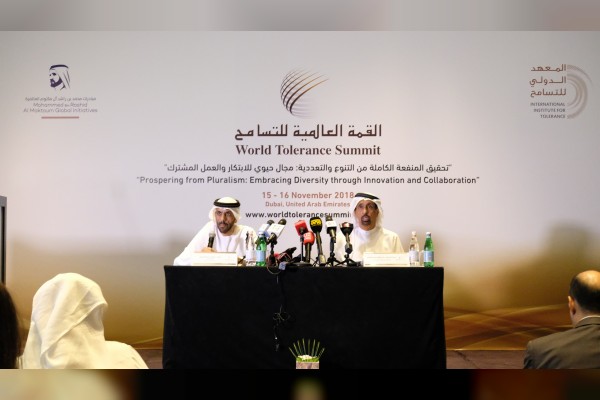
November 16 is the UN's International Day for Tolerance and to mark this occasion one of the world's less tolerant countries – the United Arab Emirates – is holding a "World Tolerance Summit".
About 1,000 people are expected to attend the two-day conference organised by the International Institute for Tolerance which was established last year by Sheikh Mohammad Bin Rashid Al Maktoum, the ruler of Dubai.
Announcing plans for the conference last June, the institute's chairman said:
“Tolerance is not simply enduring the existence of opinions, ideas, behaviours or practices that do not concur with your own. It is about recognising, respecting and embracing diversity. It is about being secure in your own culture and beliefs, so that you respond to what is different with curiosity and compassion rather than with fear and intolerance.”
Noble as those sentiments might be, there are questions about the purpose of the "tolerance summit". Is it a public relations exercise (as some suspect), a genuine step towards reform, or perhaps a combination of both?
Human Rights Watch sees the conference as an example of the Emirates' "hypocrisy". An article posted on its website yesterday said:
“The UAE has recently stepped up efforts to project an image of itself as a progressive and rights respecting nation. In its latest attempt to harness the power of public relations to provide a sheen of respectability to its authoritarian government, the UAE is hosting the first ever World Tolerance Summit ...
“But to paint the UAE government as tolerant is laughable. The summit’s website conveniently makes no mention of the UAE’s sustained assault on freedom of expression since 2011, where the authorities detain and forcibly disappear people who criticise the government, and imprison for long periods those deemed guilty of such vague acts as 'undermining national unity' and 'insulting state symbols'.”
Whatever the motives behind the conference, it's not the UAE's first move in this direction. Three years ago, at the government-sponsored Forum for Promoting Peace in Muslim Societies there were calls for "reassessment of outdated religious laws", including laws against apostasy.
In 2016 the UAE announced a National Tolerance Programme and appointed the world's first Minister for Tolerance (along with a Minister for Happiness and a Minister for the Future).
There have been various small gestures too. Last year the crown prince of Abu Dhabi ordered a mosque to be renamed as the "Mary, Mother of Jesus Mosque" to promote inter-faith understanding. This year also saw the first winner of a newly-established "award for tolerance" – presented to an Emirati customs officer who lent his car to a stranded Syrian family.
Activities of this kind can be useful if they encourage national aspirations towards tolerance, but the government website goes much further, claiming the UAE is already "a leading example of tolerance" and "an undisputed example of being a tolerant and inclusive country" – which is far from the truth.
The US State Department, for instance, notes that public criticism of the government is "severely restricted" and Human Rights Watch gives some recent examples of people being arrested or jailed for exercising their right to free speech.
Similarly, the State Department's most recent report on religious freedom catalogues numerous examples of religious intolerance in the Emirates. These include laws against blasphemy, proselytising by non-Muslims, conversion from Islam and compulsory fasting during Ramadan (for non-Muslims as well as Muslims).
Not surprisingly, Emirati law doesn't tolerate homosexuality and there is also a law against "imitating the opposite sex" which promotes intolerance of transgender people.

 RSS Feed
RSS Feed
